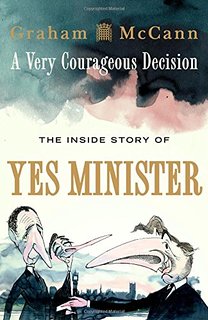WITHDRAWING MONEY FROM YOUR PENSION
TODAY’S BLOG
WITHDRAWING MONEY FROM YOUR PENSION
I was recently asked to contribute to a piece that appeared in The Telegraph on 15/02/2019. The journalist, Jonathan Jones had heard of me and asked if I would offer some insight into the maths that he was posed with.
The short version is that a 69-year old reader had a pension pot of about £500,000 and wanted £35,000 a year as income, which is about 7% of the fund. The crunch question is was this sustainable?
Sustainable Withdrawal Rate
The short answer is no it isn’t likely to be. However, it is all about context, for starters, the investors other assets, state of health, lifestyle, marital and family circumstances. However, I was asked to ignore this. In the real world of financial planning, no good adviser would ignore these important elements, but certainly for the sake of maths, I was and remain happy to provide the basic outline.
It is historically “good advice” to assume a 4% income as sustainable. This can increase with inflation each year and ensure that the original fund remains alive. All of this is subject to the real world of investment returns, charges and taxes and to put it bluntly, investor behaviour.

REVIEWS ARE VITAL
I don’t know any adviser that would set up an investment and a withdrawal of 4% a year and never review this. I imagine there are a few out there, just not those that I meet or have any sort of professional relationship with. All financial planning is based on the premise that life changes and plans need reviewing. Whilst I advocate cash flow modelling, which is a brilliant tool, it is a very good aid to understanding the future, but not predicting it. Life and investment returns are not linear. Stuff happens, things change.
I stand by everything in the article, but would caveat it with some real world experience and impress the need to review. The certainty of outcomes is myth. There is no way that someone can say with certainty, that taking £20,000 a year from a £500,000 will last for another 50 years. Its ought to, based upon historic data, it would have done, but that’s why we review.
High Equity Content
Certainly, more exposure to the real engine of a portfolio (equities / stocks) is vital and the more you have the more likely you are to have a rising income for life, but a far more volatile experience. In the real-world investors behave badly, anxiety turns to fear which turns to panic, which turns into a request to “sell, sell, sell” yet this is almost certainly, always the wrong thing to do in a portfolio of globally diverse holdings. I demonstrated this using our software, showing the historic sustainable withdrawal rates for different portfolios and the chance of future success. We also revealed the impact of life expectancy. Of course Jonathan didn’t have the page space to go into depth on the fullness of our conversation and he may also have been heavily edited. That is the difficult life of any journalist, who must create something to catch attention and fill space. The job of a financial planner is explanation, understanding and constructing a robust, reviewed ongoing service.
The art of self-delusion
This is something that many investors, particularly DIY investors believe that they are immune to (lack of fear). Most end up chasing returns, usually buying the current hot tips or best performers. However, this is not the Premier League, it is the real world of investing, past performance guarantees nothing and is certainly no indicator of the future when it comes to stock selection “success”. See Dalbar.com for information about how badly investors underperform.
I think the article is a good overview, but please do not infer advice from it. Context is everything. For all I know, the investor concerned was born in 1950 with a life expectancy of a few months and may have a much younger spouse with three or four children. The advice should always be suitable to the circumstances of the investor.
Dominic Thomas
Solomons IFA
You can read more articles about Pensions, Wealth Management, Retirement, Investments, Financial Planning and Estate Planning on my blog which gets updated every week. If you would like to talk to me about your personal wealth planning and how we can make you stay wealthier for longer then please get in touch by calling 08000 736 273 or email info@solomonsifa.co.uk

GET IN TOUCH
Solomon’s Independent Financial Advisers
The Old Bakery, 2D Edna Road, Raynes Park, London, SW20 8BT
Email – info@solomonsifa.co.uk
Call – 020 8542 8084

GET IN TOUCH
Solomon’s Independent Financial Advisers
The Old Bakery, 2D Edna Road, Raynes Park, London, SW20 8BT
Email – info@solomonsifa.co.uk Call – 020 8542 8084









